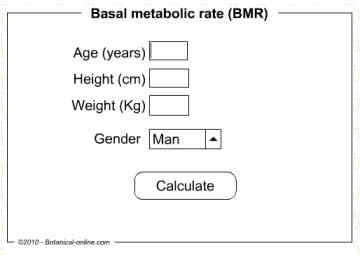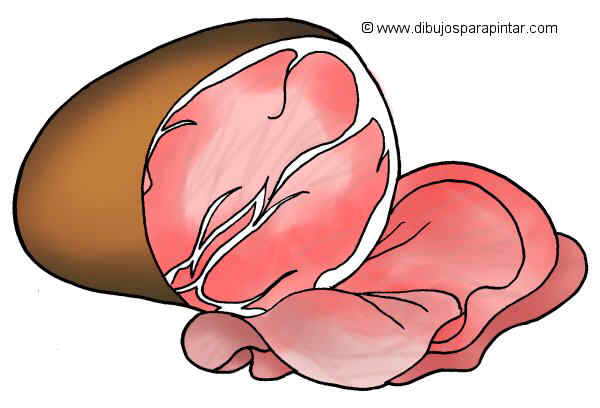Contents [show]
BASAL METABOLISM DEFINITION
What is basal metabolism?
 The amount of energy consumed by a person at rest is known as basal metabolism. It is the energy that we needed so that our vital constants (our brain, our heart, etc) can work in an involuntary way and the organism can maintain a constant temperature.
The amount of energy consumed by a person at rest is known as basal metabolism. It is the energy that we needed so that our vital constants (our brain, our heart, etc) can work in an involuntary way and the organism can maintain a constant temperature.
The energy we consume is measured in calories. Calories measure the energy that provides nourishment to the body. There are foods that are much caloric than others. For example, 100 g of almonds provide 560 calories, which is ten times more than the same amount of fresh pear, which provides only 56 calories.
Types of basal metabolism
Depending on how we “burn”calories, we can define the basal metabolism as:
- “Normal” basal metabolism: Most people have it.
- “Slow” basal metabolism: the body at rest has a lower energy expenditure than it is considered to be “normal”. People with slower metabolism tend to be overweight or suffer from obesity.
- “Fast” basal Metabolism: the body at rest has a higher caloric expenditure than would be normal. People with this type of metabolism tend to be thinner or more muscular.
Factors that determine basal metabolism
The basal metabolic rate tends to depend on genetic factors. Heredity determines in most cases the type of metabolism of each person. However, there are a number of factors that can affect metabolism, such as:
- Age: Young people have a faster metabolic rate than older people. The reason for this difference is based on the different relationship between the proportion of muscle versus fat according to age. Young people are more muscular. As we pass 40 years, the proportion of muscle versus fat becomes lower. Fat requires less energy to burn than muscle so that as we age, our metabolic rate slows down.
- Sex: The basal metabolism of women is lower than men’s.
- Type of physical exercise: Exercise is not only a waste of energy but increases the proportion of muscle versus fat. Therefore the person who exercises, as well as burning calories, turns his/her body into a “machine” with more rapid metabolism.
- Stress: Stress, in principle, generates an increase of the metabolism, although this does not necessarily mean that the stressed person is thinner because he/she can consume more calories. Many stressful situations involve an acute need to eat very caloric foods so that people suffering from stress may have a rather obese physical aspect.
- Fever: Fever increases the metabolic rate.
- Pregnancy and breastfeeding: A woman’s metabolism increases during these periods.
- Food: If you eat little, your metabolism slows down. If we eat too much, although the metabolism speeds up, our body may be unable to consume excess calories and stores fat. A balanced diet is the best way to provide the necessary nutrients to the body with the vitamins and minerals it needs for proper metabolic functions. (More on this in the listing below)
- Ingestion of medicines, stimulants, tranquilizers, drugs, etc: They can slow down or accelerate metabolism.
How to calculate the calories we spend?
In practice, a basal metabolism calculator is the most appropriate instrument to learn how many calories our body uses at rest. (Open calorie calculator)
![]() More information on the metabolism.
More information on the metabolism.









